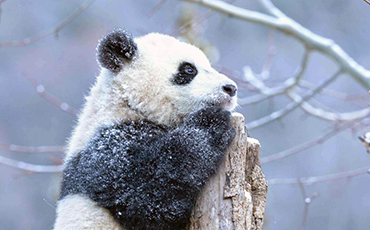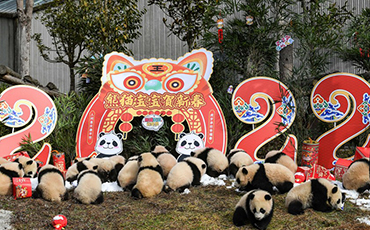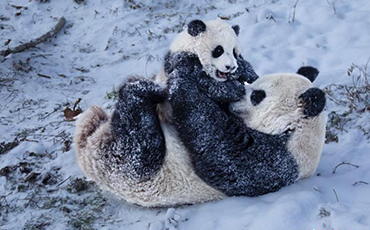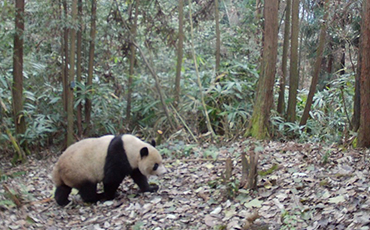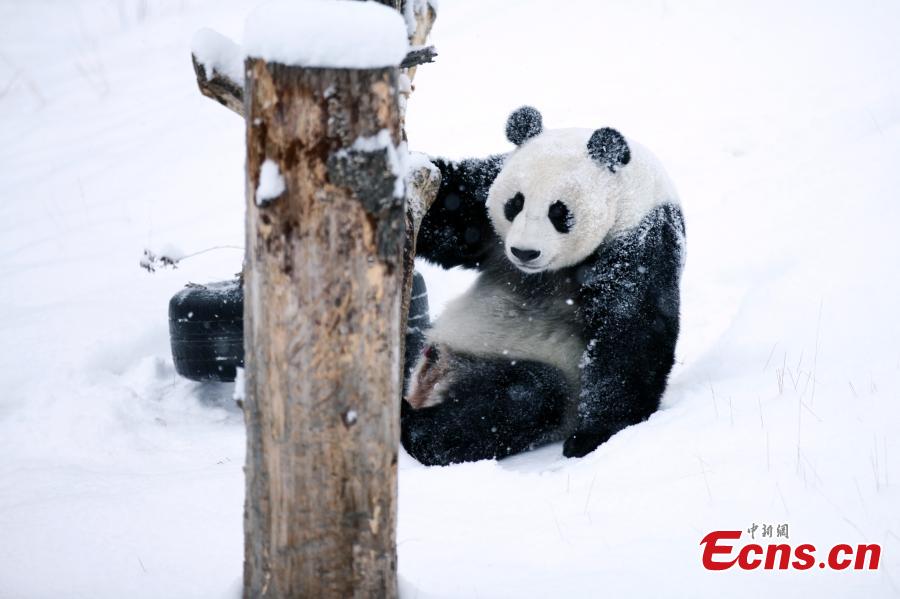Swans turn Ruoergai Plateau Lake into winged visitors’ paradise
The drop in temperatures ushered in groups of wild giant swans to Luojiaqiongguo River in Maixi township of Ruoergai County. The birds travel thousands of miles to reach their destination of Luojiaqiongguo River and add to the fairytale charm of the icy grasslands and snow.
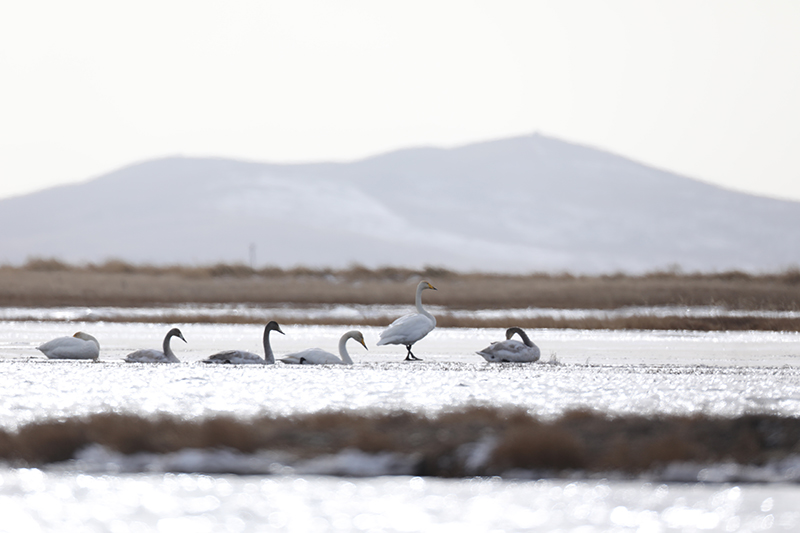
In winter, the temperature of Ruoergai drops to minus 13 degrees Celsius. In Maixi Township, a small plateau town with an altitude of more than 3,400 meters, nearly 100 swans freely forage and play on the huge lake, take to the skies and dance in groups, turning Swan Lake into paradise. This group of "white elves" sometimes sing and fly, flutter and add to the beauty of the frozen plateau wetland.
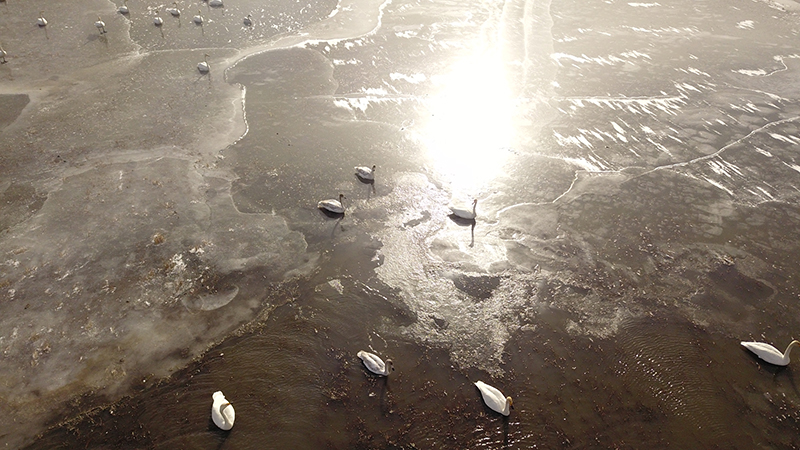
Ruoergai County enjoys the reputation of being “the most beautiful alpine wetland grassland in China” and "the hometown of black-necked cranes in China". It is also an important wintering and resting place for migratory birds. Luojiaqiongguo River in Maixi Township, 100 km west of Ruoergai County, is free of ice all year round due to geothermal water, which also creates a good environment for swan — the national second class protected animal — during the winter. From November to March next year, the swans will thrive in Siberia and Northeast China. At present, there are more than 100 swans in the region.
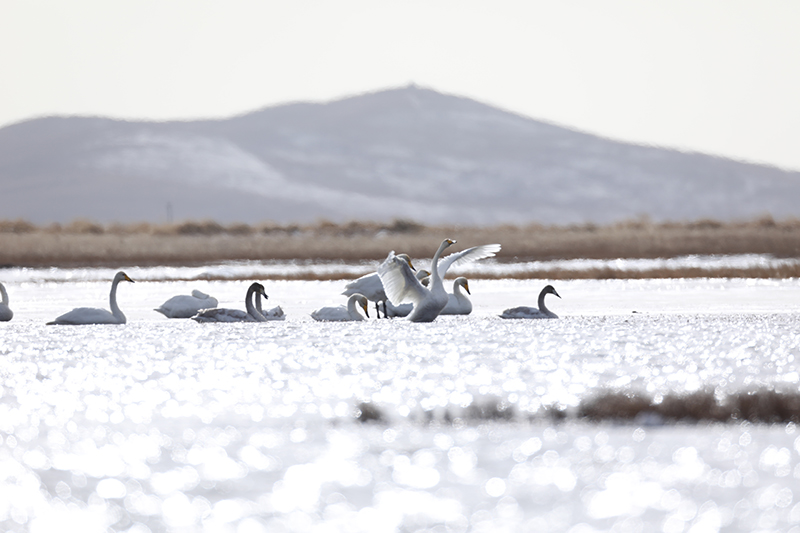
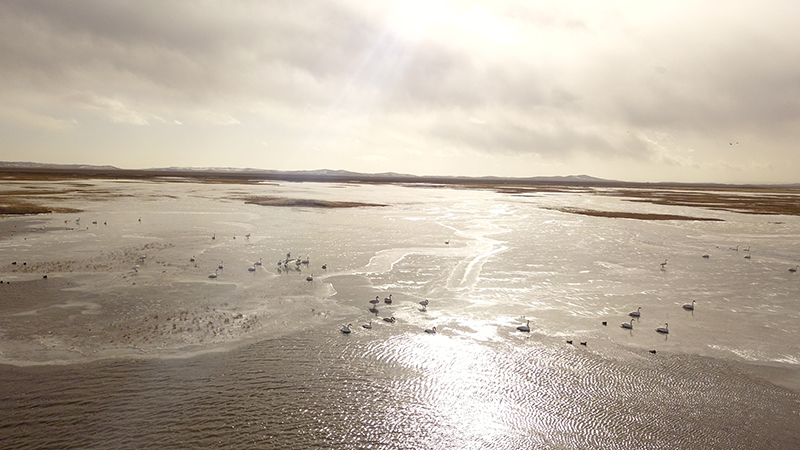
"Recently, a large number of swans have appeared in the areas around Flower Lake and Maixi township of the National Nature Reserve of Ruoergai Wetland in Sichuan Province with the largest population of more than 120 under monitoring," said Solang Duoerji, staff member at the National Nature Reserve Administration of Ruoergai Wetland in Sichuan Province. The main work we have done recently is to monitor the epidemic focus and disease. We have carried out daily monitoring in the areas inhabited by swans, focusing on evidence of an epidemic. During nearly a month’s monitoring, we have not recorded any death of wild animals and birds in our reserve."(By Edina Liang)
